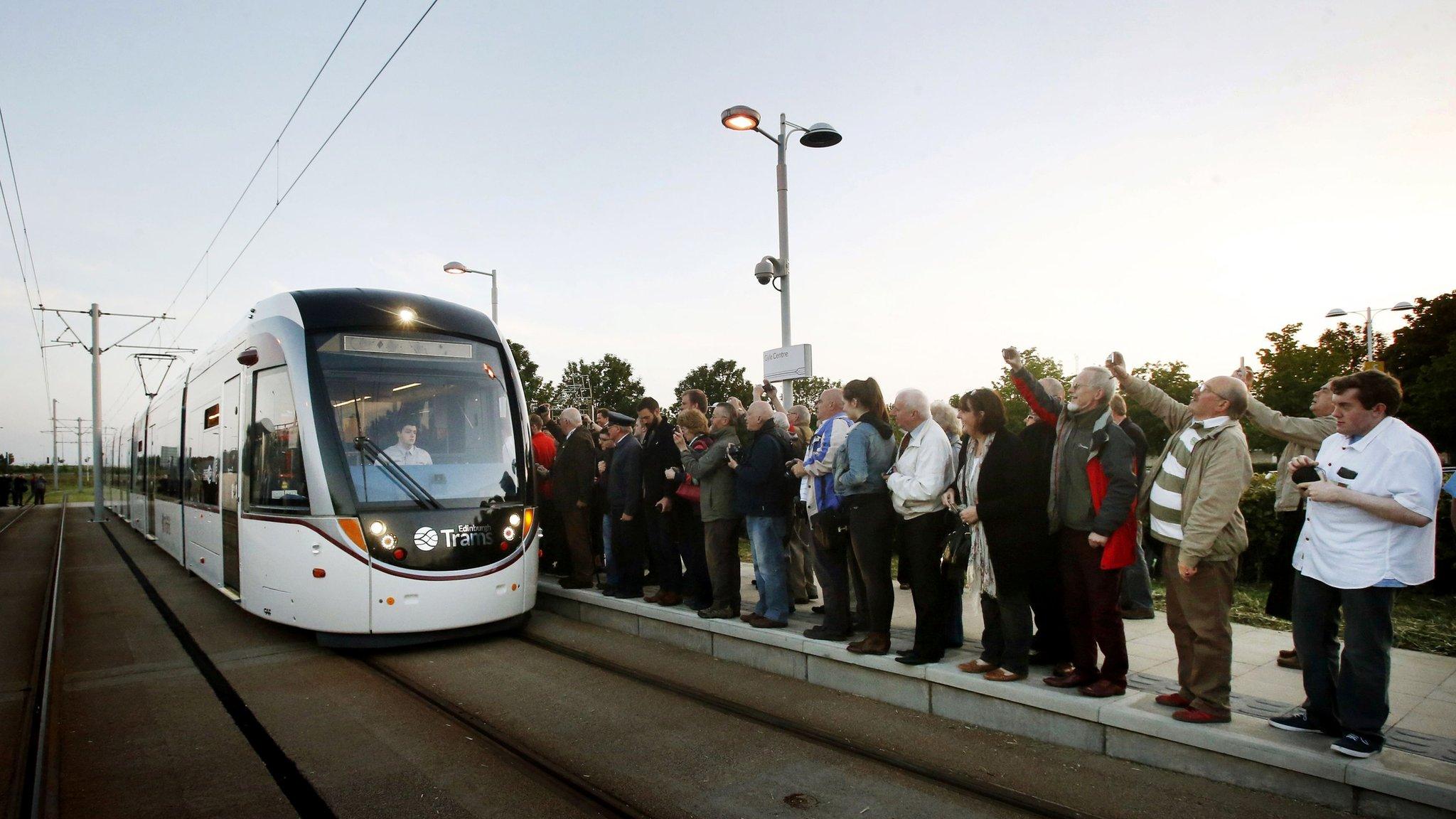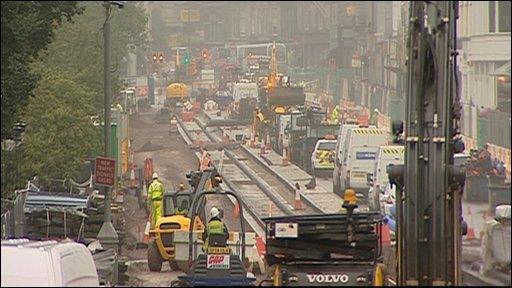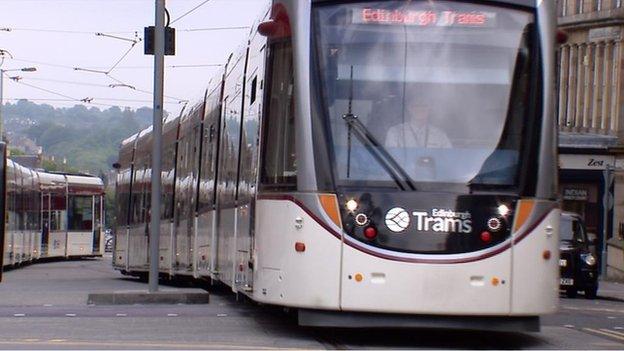Edinburgh tram inquiry: Key figures refused to co-operate
- Published
The boss of the inquiry into Edinburgh's trams project tells BBC Scotland that "some people refused point blank to co-operate"
The man leading the public inquiry into the Edinburgh trams fiasco has told how key figures refused "point blank" to co-operate.
In a BBC Scotland interview, Lord Hardie pledged his investigation would be tough and effective.
The Scottish government said last month the inquiry was to be given the power to compel witnesses to participate.
First Minister Nicola Sturgeon took the decision after Lord Hardie reported he had encountered a lack of co-operation.
In his first broadcast interview since the start of the inquiry, Lord Hardie said: "Our preliminary investigations, contacting people who we thought might be of assistance, threw up the problem.
"Some people refused point blank to co-operate, others just didn't answer letters.
"It became clear to me that if that persisted then the whole process could be frustrated and certainly take a period of time that was unacceptable to me."
Asked if he was confident that all relevant paperwork had been retained, Lord Hardie said his team would be able to identify if key documents or emails were missing.
He said: "One of the functions of the system that we are procuring is that it will sort out the documents into various orders and it will be able to identify gaps, for instance in an email trail.
"We will learn from that if there are indeed gaps."
Work on the inquiry is already well under way but it is not yet known when the first public hearings will take place or who Lord Hardie will call to appear before him.
The inquiry team is based in Edinburgh's Waverley Gate building, the capital's former General Post Office.
Details of proceedings will be made available via the inquiry website.
Lord Hardie expects there will be strong public interest in the inquiry and has urged members of the public to play their part in helping to identify what went wrong.
He said: "There were consequences that I am aware of for householders, for shopkeepers, for developers not only along the route of the tram but along the diverted routes of traffic.
"I would put out a plea to them now to think about what they are going to say, to get together with like-minded people to present a joint submission to the inquiry at the appropriate time, which will be when we call for evidence.
"If lessons are learned, then the benefit of this inquiry will be that future public procurement contracts will be delivered on time, on budget and as promised."
Edinburgh's tram service began running in May, but only after six years of disruption and a bitter dispute between the city council and its contractor.
The previous Labour-led Scottish government originally earmarked £375m to pay for the tram network, which ended up costing £776m and began running years late.
- Published12 June 2014

- Published5 June 2014

- Published30 May 2014

- Published31 May 2014

- Published31 May 2014